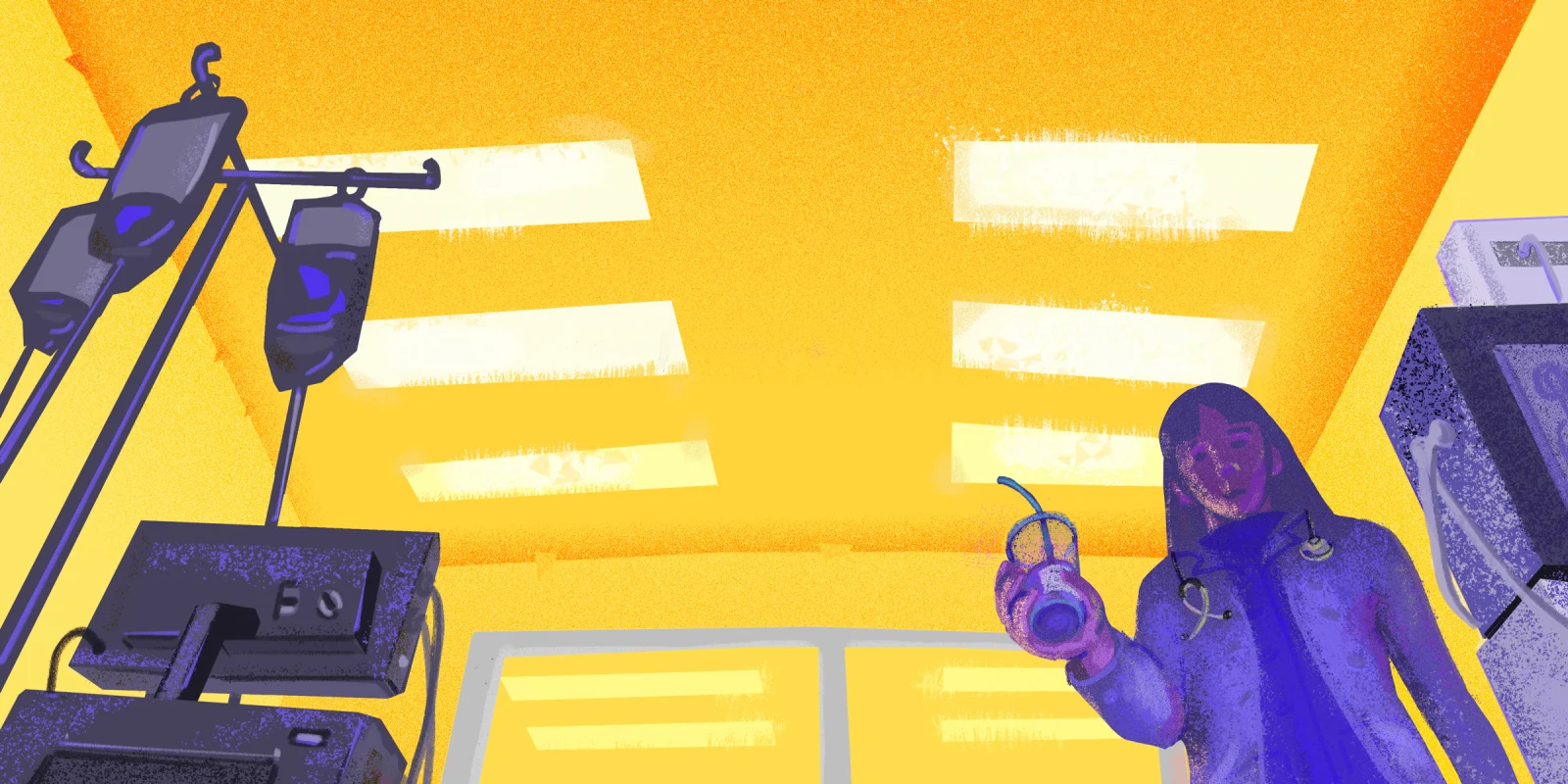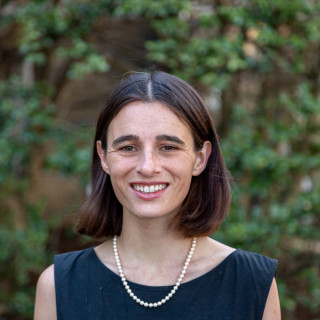As surgeons, we’re comfortable taking the human body apart, stripping a person down to their most vulnerable selves. In our profession, there is an immediacy to the sense of healing, and this is a beautiful thing to share with our patients. But often as residents in surgery, we forget the empathy our professors tried so hard to instill in us in medical school.
I’m thinking of this notion as we, the call team, drive home post-24-hour trauma shift. Ed Sheeran’s “Shivers” is blasting on the radio, and the car smells of cafeteria eggs and coffee. It’s a real vibe.
On trauma calls, we see, learn, and grow a lot. But much of the growth comes from dealing with horrors. Consider what we saw in 24 hours: gunshot wounds, stabbings, somebody hit by an ax, another hit by a subway, and a multicar pileup with an entire family injured.
About halfway through my call, I was in the ED listening to the hum of the fluorescent lighting and patients’ groans. It could’ve been any time of the day, but looking around, I could tell by the sheer volume of patients double-parked in stretchers filling the oversized, overlit room that it was after 6 p.m. on a weekend.
I was searching for a patient I’d never met. She needed to go to the OR for a cholecystectomy. I called her name, and a woman with indistinct features responded. I got all the way to the elevators before realizing I had the wrong patient. The person with me didn’t know she was getting her gallbladder out because she wasn’t there to get it out in the first place. It’s pretty important to check a patient’s arm band.
Meanwhile, my pager had gone off once a minute for the past hour — and that is not hyperbole: “Doc plz change labs to lab collect. Doc Rm 322 nauseous order Zofran. Doc pt in 301 fever 39.1. Doc … Doc … Doc…”
Everybody calls us “Doc” here. It’s never Dr. Cain or Caitlin (like I ask people to call me); it’s just “Doc” — a simple epithet, but one I worked so hard for.
Now what does “Doc” mean to me? That I occasionally lie about my work hours, about how tired and scared I am, about how numb with exhaustion I am on my worst days. That I live for the moments when I get to be in the OR doing a skin-to-skin appendectomy and when I get to feel the spark of connection with my patients.
“Doc” is also somebody who sneaks to the NICU at night. It’s a peaceful, small room with glass walls, tucked away on the second floor — womb-like and warm. Incubators are lined up in neat rows. Sometimes we have a patient here from our consult list I can use as the premise for me to visit.
When I went to the NICU that day, our neonate was asleep under the sweet blue hue of the phototherapy lamp over his incubator. The blue light made his tube output look bloody, and for a moment it scared me. Is it normal to talk to NICU babies? The baby’s blood pressure cuff had a print of a tiny seated cat with its tail curled up expectantly. What is it waiting for? I wondered.
I was called away by a page: “Doc pt Rm 322 emesis 6x in hr.” It was time for a nasogastric tube.
The placement rarely works on the first try. Even with the most cooperative patients it usually takes multiple attempts. And the patient’s nose often trickles with blood by the end. They gag, vomit, scream; they tell you to stop, and we don’t. I had done so many at that point, and I was troubled by how easily I was able to place one — not technically, but psychologically.
But on my way, they called a trauma overhead. My patient who needed the nasogastric tube got a break after all. I headed down to the ED instead.
Running down the stairs, I was startled by the thought of being a trauma patient. I could see the scenario before me: My airway is intact; I’m breathing. I have pulses. My Glasgow Coma Scale is 15. Somebody cuts off my clothes, removes my bracelets, and puts them in a plastic biohazard bag. I can’t move. My neck is restrained in a C-collar. They are holding down my wrists to put in IVs. They roll me on my side to check my back, axilla, buttocks, perineum. There’s cold gel on my abdomen and somebody jams down on it with an ultrasound probe, trying to find Morrison’s pouch. “Take a deep breath,” someone tells me. I’m lying there exposed, waiting to be covered with a warm blanket. I look up and see another version of myself holding a skin stapler to the blood streaming from my head. I scream with each staple and beg her to stop. I’m in pain. Her eyes say nothing. They don’t comfort me. I want her to grab my hand and tell me it will be OK. She’s distracted placing orders at the nearby computer while a hard X-ray board is jammed under my chest. As she puts a portable monitor with my vitals next to my head — packaging me up for the CT scanner — she finally whispers, “It will be OK.”
The thought of it is terrifying.
When interviewing for surgical residency, I was often asked, “What do you think the hardest part of intern year will be?” I don’t think anybody would have hired me if I answered what I now know to be true: maintaining my humanity and empathy amid mental and physical strain. I now realize it’s the hardest, most important part of residency, and it’s critical to being a good “Doc.” We must recognize when our empathy breaks down, to take in small moments for ourselves at work and home — be it time with a beloved NICU baby or a post-call cup of coffee — so we can be better for ourselves and for our patients.
What would have been your honest answer to the hardest part about intern year? Share in the comment section.
Caitlin J. Cain is a first year surgical resident at New York Presbyterian/Weill-Cornell Medical Center. She is an aspiring pediatric surgeon and is interested in medical humanities as a means for enhancing clinical practice. Follow her on twitter @joelle_caitlin.
Illustration by Jennifer Bogartz







